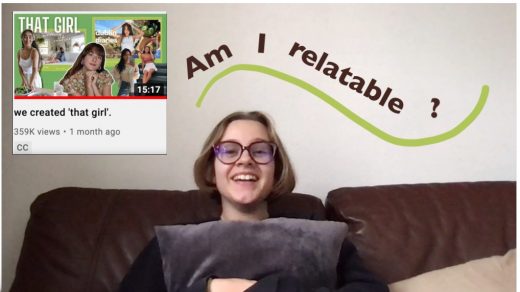I work in a museum, where I guard the art while also providing visitors with extra information about the works on display. Besides this, I also work in the museum shop where we mainly sell postcards and small gifts. It’s a place which gets around a thousand visitors a day, meaning you see a lot of faces come and go throughout the day. The visitors are 99% of the time people I have never seen before, and I probably won’t see them ever again. Usually, there’s old people that don’t listen to you, or they are just rude with a misconception of how to act in a museum. Of course there’s the few friendly faces who wish you a nice day and respect the environment they are in. But either way, I tend to forget all the thousand faces I’ve seen before I get home and I’m happy with that. But for the past few days, I’ve seen people I recognized from TV and it amazed me how this was immediately such a different experience.

It all started when I was helping an old, confused lady preorder one of our catalogues. For some administrative purposes we needed her phone number, to which she said “I’m not sure if I have one, let me get my son.”. I was a bit confused as a phone number is -atleast so I thought- something everyone knows the existence of. She walked off and came back with someone I’ve seen on TV for years: Dutch presentator Beau van Erven Dorens, known for for instance RTL Boulevard and Ik Hou van Holland. I couldn’t care less about the shows he presents, but I still couldn’t help myself from analyzing every word he said and testing if he really is the way he presents himself on national television. He was dressed more casually, not in his usual suit. He was a bit shorter, more wrinkled, but definitely recognizable as the man on TV. He was one of the most friendly customers I had ever had in the store, he wished me a nice day and replied to questions like “would you like the receipt?” or “do you need a plastic bag?” (questions many people completely ignore). And just like that, he left, leaving me feeling weirdly satisfied with our short interaction. I felt so accomplished for speaking to someone everyone knows (and here I am writing an article on it), even though I speak to so many people daily. Why is this?
A few days after this encounter, it happened again. This time it was someone I actually care about more: Sergio Vyent, the host from First Dates. First Dates is my guilty pleasure and I watch it almost every night. The awkward blind dates and feel good mood emphasized by Sergio makes my bad days better. I was standing in one of the exhibitions when my colleague came running up to me and said “In a few minutes someone really nice is gonna come by”. It had been a long and boring day, there was only one hour left which I usually spend half asleep in a corner of the room, but this time I felt so hyped. It was this excited tingle, and I couldn’t help myself from listening if I could hear his distinguishable voice approach from a distance. As he is the man who greets all people on the show with a smile and a nice chat, I got this strange expectation that he would be just as friendly and talkative outside of the set. And finally, there he was. He was with his wife and kids, and to my disappointment he kind of glanced at me as I said hello and walked past. I greet every visitor we have, and this was probably one of the least exciting interactions I ever had. I can imagine that as a BN’er you have many people greet you, but at the end of the day I’m just doing my job and so I treated him the same as any other visitor. It did however leave me to wonder if the personality we see of him on TV is truly him, or if there is really such a clear gap between his front and backstage. With Beau van Erven Dorens the who seemed to intertwine more. Of course he’s not exactly the same, but at least he interacted with me.
It reminded me of the front and backstage described by Erving Goffman in The Presentation of Self in Everyday Life which analyses interpersonal interaction and how individuals perform to present a desirable image. In this case, the television set provides an environment where presenters and hosts perform in a way that welcomes the viewer and makes you want to watch the show again. The real self of the presenter then becomes concealed by the distance between them and the audience, watching at home.
These encounters left me to wonder about the expectations we build up when we see someone on TV, and about the extent to which those are true. Ultimately we are wrong to even rely on those expectations in the first place, as those people are just doing their job -which happens to involve having a specific persona on TV, which is designed to appeal to viewers. At the end of the day I also present myself differently at work than at home, so why do I blame them?




This blog post got me thinking about the paparazzi videos we see of celebrities. These celebs have a certain portrayal of themselves to the public, their frontstage. We all think we ‘know’ them but we don’t, celebs have their backstage that we do not get to see. When paparazzi make videos of these celebrities and they are ‘rude,’ I think we as the public need to chill out with judging them. Can we blame these celebs to be a little rude or not in the mood to talk and be nice to the paparazzi who want to videotape them all the time? When celebs are themselves in their backstage, they are not obliged to always interact with their fans/paparazzi. Celebs have their backstage that is private from us and we need to accept that. They are also just people who cannot always hold up their frontstage, like everyone else, celebrity or not.